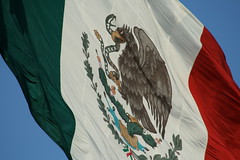 Non-Cuban Americans can travel freely as short-term tourists to Cuba, needing just a passport and your plane ticket’s tourist card. However, if you are an American citizen born in Cuba, you must get a visa at the Cuban embassy before traveling to the island.
Non-Cuban Americans can travel freely as short-term tourists to Cuba, needing just a passport and your plane ticket’s tourist card. However, if you are an American citizen born in Cuba, you must get a visa at the Cuban embassy before traveling to the island.
Those citizens under United States jurisdiction, which includes all U.S. residents, should understand that there is a partial trade embargo with Cuba. It is illegal to trade in Cuba. For the tourist, this means that you cannot spend money or buy gifts unless you have a license to do so. If you engage in illegal trading with Cuba, you will be subject to fines and prosecution when you return to the United States.
Tourists should also note that visiting Cuba can be a double-edged sword. The Cuban government is a police-state maintaining order by electronic and physical surveillance of its citizens and tourists. Be aware that the U.S. has consular services in Havana, but not full diplomatic relations with the government and that you travel there at your own risk. The Swiss Embassy and therefore the Swiss government legally protects the U.S. Interests Section of the consulate, although they are not located within the same building.
Tourists are often targets for crime. Violent street crime is on the rise against tourists, mostly during robberies and burglaries. Thefts, such as pick pocketing, muggings, and the stealing of unattended luggage, are commonplace. Carry a copy of your passport at all times on your person. It would be prudent to keep a copy of your travel insurance policy on you as well. If police or other officials questions you, you will have your U.S. citizenship papers and proof of identity handy. Leave the originals in a secure place. If you are the victim of crime, call the police at 106, the Cuban equivalent to the American 911 emergency number. Fire is 105.
Note that Cuban medical care does not conform to the same standard as American care. Bring prescriptions with you, especially life-saving ones such as blood pressure and insulin. Do not attempt to enter the country without a copy of your prescription and a letter why it is needed. You may be denied entry.
Cira Garcia Hospital is located in the Miramar neighborhood, the only place in Havana where you may be treated. Although travel medical insurance is imperative while traveling to Cuba, be aware that all medical consultation and treatment is payable with cash only.
Check the current travel warnings and restrictions at the U.S. State Department web site before you travel to Cuba.








